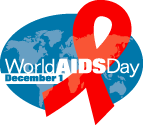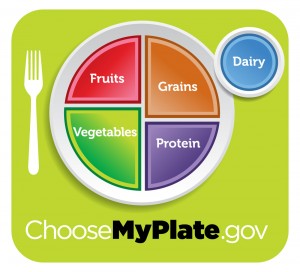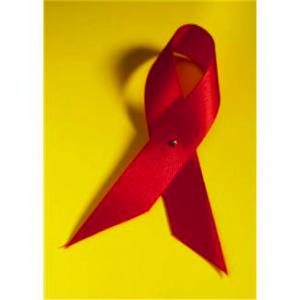 December 1st is recognized around the world as World AIDS Day. Compared to a few decades ago we don’t hear much about this disease however, the United Nations estimates that in 2010 there were nearly 34 million people living with human immunodeficiency virus (HIV).
December 1st is recognized around the world as World AIDS Day. Compared to a few decades ago we don’t hear much about this disease however, the United Nations estimates that in 2010 there were nearly 34 million people living with human immunodeficiency virus (HIV).
HIV and AIDS impacts individuals across the world, but it is ever prevalent here in America.  It is estimated that everyday 1,000 children under the age of 15 are infected with HIV around the world. HIV and Acquired Immunodeficiency Syndrome (AIDS) impact the immune system. It is important for individuals diagnosed with HIV and AIDS to keep their immune system and body strong and healthy to better fight disease. A healthy balanced diet enables the body to process the medication individuals with HIV and AIDS are taking. Often those suffering from HIV and AIDS experience weight loss, wasting, and malnutrition which can contribute to HIV disease advancement. Proper diet and exercise can help with symptoms like diarrhea, nausea, fatigue, fat redistribution, high blood sugar, high cholesterol and high triglycerides. These symptoms often lead to diabetes, heart disease and certain cancers.
It is estimated that everyday 1,000 children under the age of 15 are infected with HIV around the world. HIV and Acquired Immunodeficiency Syndrome (AIDS) impact the immune system. It is important for individuals diagnosed with HIV and AIDS to keep their immune system and body strong and healthy to better fight disease. A healthy balanced diet enables the body to process the medication individuals with HIV and AIDS are taking. Often those suffering from HIV and AIDS experience weight loss, wasting, and malnutrition which can contribute to HIV disease advancement. Proper diet and exercise can help with symptoms like diarrhea, nausea, fatigue, fat redistribution, high blood sugar, high cholesterol and high triglycerides. These symptoms often lead to diabetes, heart disease and certain cancers.
Nutrition
A diet high in vegetables, fruits, whole grains, and low-fat protein is ideal for those who are diagnosed with HIV and AIDS. The nutrient-dense foods will provide the body the necessary vitamins and minerals to properly fight off disease. The diet should be low in empty calorie foods that are high in sugar and fat.  These guidelines follow the United States Department of Agriculture’s (USDA) MyPlate recommendations and individualized food plans can be created through the Super tracker tool on the www.choosemyplate.gov website. The key points from MyPlate that individuals should remember is to make half their plate fruits and vegetables, make half your grains whole grains, go lean with a variety of protein, and choose low-fat dairy foods while limiting solid fats, added sugars and salt.
These guidelines follow the United States Department of Agriculture’s (USDA) MyPlate recommendations and individualized food plans can be created through the Super tracker tool on the www.choosemyplate.gov website. The key points from MyPlate that individuals should remember is to make half their plate fruits and vegetables, make half your grains whole grains, go lean with a variety of protein, and choose low-fat dairy foods while limiting solid fats, added sugars and salt.
In addition to following the MyPlate guidelines individuals with HIV have greater protein needs then the average person. Protein is essential for making, developing and repairing cells in the body. Likewise, it is important that individuals with HIV eat foods that have a lot of vitamins and minerals, like fruits, vegetables and whole grains. Certain vitamins and minerals, like zinc, iron, selenium and vitamin B12 may not be well absorbed in those with HIV. Finally, it is important that people with HIV and AIDS eat foods that are safe because their immune system is weakened. Individuals with HIV and AIDS are more susceptible to food poisoning.
In the Southeastern, Pennsylvania and Southern, New Jersey area the Metropolitan Area Neighborhood Nutrition Alliance (MANNA) realizes the importance of good nutrition and provides free meals to those at home fighting HIV/AIDS and other life threatening illnesses.
Challenges
Eating and following the recommendations can become challenging when one is feeling symptoms like diarrhea, nausea, vomiting, sore mouth and taste changes. It is important that an individual with HIV or AIDS is getting enough calories and nutrients to maintain a healthy weight and fight disease. Food safety is especially important for those with HIV. When experiencing challenging times meeting with a registered dietitian can help you learn strategies to overcome the challenges.
Hopefully one day there will be a cure for this disease!
Academy of Nutrition & Dietetics
AIDS.gov
MANNA – Southeastern PA & Southern NJ
National HIV & STD Testing Resources
UNICEF
USDA National Agricultural Library World Health Organization
by Michelle Ostran
Eat Fit Health Intern
